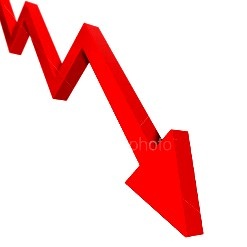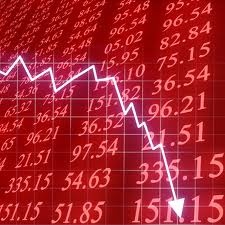

Could the US debt ceiling “compromise” trigger a recession? Yes - timing was horrendous - in combination with other factors – unemployment, unsustainable petroleum prices, sovereign debt crisis in a structurally mismatched Eurozone and the rush toward austerity. Unfortunately these factors may be in motion as part of what some have begun to call the perfect storm.
Supporters of the US budget deal as part of the US debt ceiling compromise had argued that this would create more certainty and more jobs. That was a dubious and more ideological rather than economically sound argument. The opposite has occurred. There is less confidence in the political process and greater caution regarding politicians who have acted irresponsibly in dealing with US credit standing through Russian roulette. Since the “compromise,” the rhetoric has done more rather than less to raise anxiety in sane economic minds.
Budget Deal Will Cost Jobs & Economic Activity:
The US debt crisis compromise is no better as it heralds a reduction in spending but also US economic activity (Read “Cut in US Economic Forecasts” -
diplomaticallyincorrect.org/films/blog_post/cut-in-us-economic-growth-forecasts-by-ambassador-mo/32753 ). Supporters of the compromise point out that no actual spending cuts are scheduled for 2011 and few for 2012. However, the prospect of reduced economic activity a year or more out will impact private sector hiring and investment today – that is only good planning and budgeting for the future. Further, the “debt compromise” calls for another 1.5 trillion spending cuts, which should only serve to weigh down economic movement forward.
Petroleum Bubble as Trigger, in 2008 & Now:
Petroleum prices have been driven up less by fundamentals of producer supplies and consumer demand. Rather it is speculation, little to do with OPEC or the consumer at the pump. The problem with such financially rather than producer/consumer driven prices is that it generally ends with abrupt crashes - with the broader economy forced off the road. (Also food prices spiking have been triggered as much by energy costs and speculation). I remain of the view that the last recession was as much triggered by accelerating petroleum prices that kept rising, and even in the face of clear fundamental data that the economy was already sliding. (The oil bubble in percentage terms from any baseline was considerably more extreme by several multiples compared to housing). Read - “Is there Oil Price Manipulation or Speculation?” -
diplomaticallyincorrect.org/films/blog_post/is-there-oil-price-manipulation-or-speculation-by-ambassador-mo/27510
Last Recession Still Persists?
Is the last recession even over? On technical terms, particularly the action in financial markets and Wall Street, mostly yes. However, if you look at employment and housing – two US fundamentals – little has changed. There was never a recovery across the board, and the US consumer has been drained of life energy by real and contrived considerations. Since the top of the pyramid lives off what is below it, such a significant sector of the “average consumer” still suffering is not tenable for the health of the entire pyramid.
Eurozone Structural Mismatch:
The Eurozone sovereign debt crisis is spreading, in large part because there are still no or inadequate structural reforms to the fundamental mismatches within the Euro club. (READ -– “Death of the Euro?” -
diplomaticallyincorrect.org/films/blog_post/death-of-the-euro-by-ambassador-mo/29753 ). Whether driven by an ever more predatory, speculative environment or fundamentals or both, the continued structural vulnerability of the Eurozone is being hunted down by the financial markets. The European Central Bank having to reenter and wade into further indirect rescues of Italian and Spanish debt is indicative of a new below surface tidal surge of uncertainty ( or speculation as some have alleged).
Seesawing Global Economic Balance – From Growth to Stagnation:
Most Asian economies still appear to be advancing. Weakness in Europe and the US though may be enough to infect the rest of the globe with economic malaise. The US budget deal is most counterproductive now. At a time when some other countries (from Greece, to Italy) may have to engage in dramatic austerity, the US also veering away from job creation and economic stimulus toward cuts tends to shift the balance of the trend dangerously toward a slowdown. Worse, it may be a trend toward stagflation - prices may spike while economic activity stagnates. Where fundamental economic considerations become secondary to artificially driven commodity and financial markets, the solution may be even more difficult to secure once the slide begins.
Related Reports at “International Financial Crisis Channel” -
diplomaticallyincorrect.org/c/international-financial-crisis
By Ambassador Muhamed Sacirbey
Facebook – Become a Fan at “Diplomatically Incorrect”
Twitter – Follow us at DiplomaticallyX



